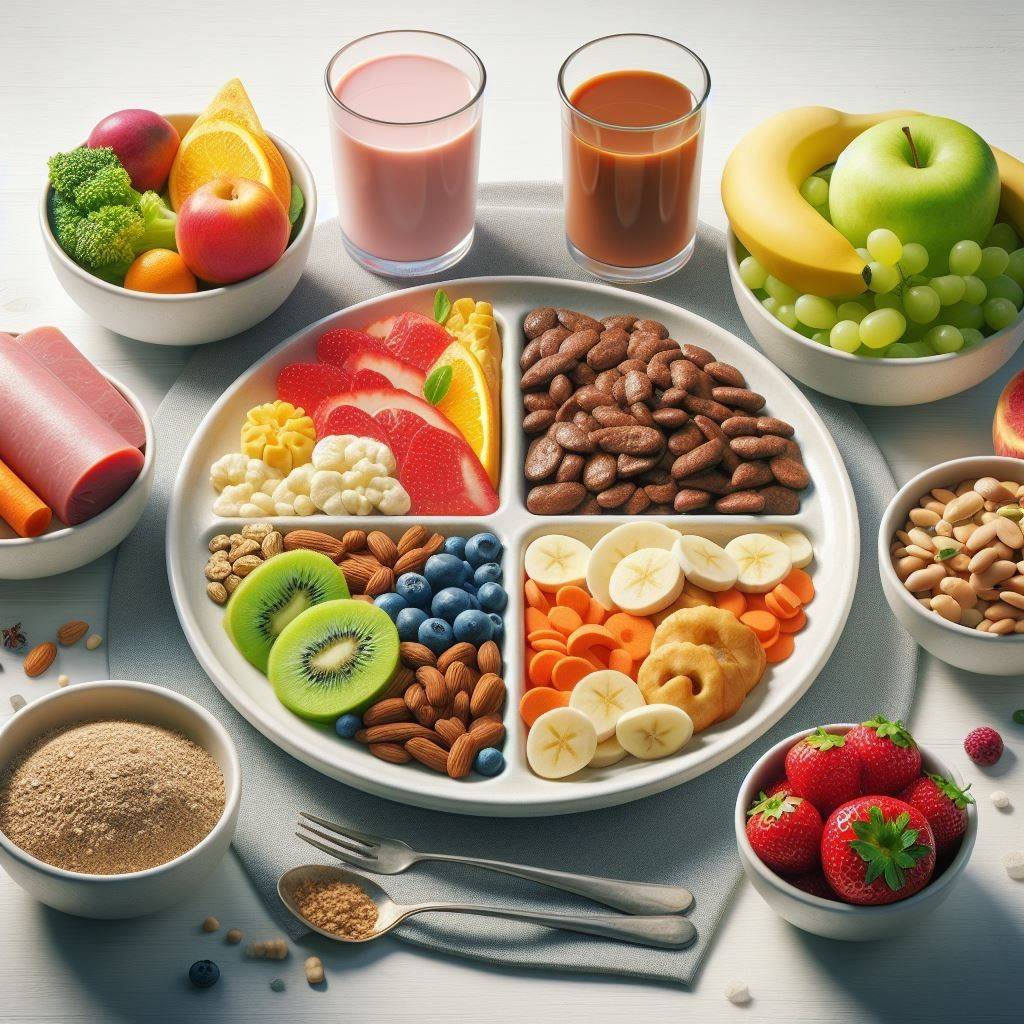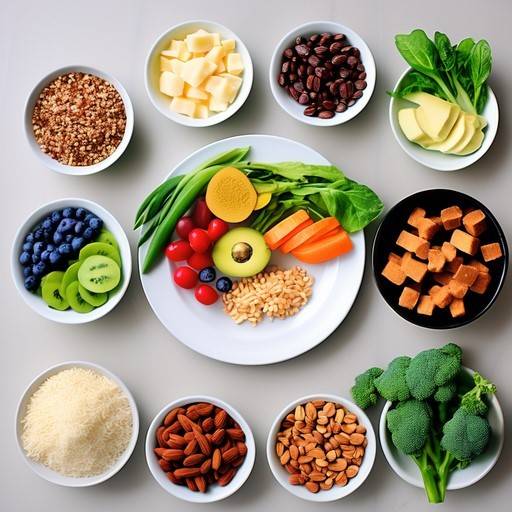IBS Constipation Diet: Transform Your Gut Health
Irritable Bowel Syndrome (IBS) is a common digestive disorder that affects the large intestine. Symptoms include abdominal pain, bloating, and changes in bowel habits – either constipation, diarrhea, or both. For those with an IBS Constipation Diet, making dietary and lifestyle changes is key to managing symptoms. Read on to learn about how an IBS Constipation Diet can transform your gut health.
How Does Diet Impact IBS Constipation?
The foods you eat can have a big effect on constipation caused by IBS. Certain foods are more likely to produce gastrointestinal symptoms while others can help improve motility and regularity. Paying attention to your diet is one of the most effective natural ways to relieve IBS Constipation Diet.
Some dietary factors that contribute to constipation include:
- Low fiber intake: Fiber adds bulk to stool and helps move it through the intestines. Insufficient fibre leads to hard, dry stools that are difficult to pass.
- Not enough fluids: Dehydration causes stool to become harder and more impacted. Aim for at least 64 ounces of fluids per day.
- Dairy products: For some people, dairy products trigger constipation and gastrointestinal discomfort.
- Fatty foods: This slow digestion and can lead to infrequent, hard bowel movements.
- Caffeine: Excess intake can promote water loss and dehydration.
- Alcohol: Alcohol withdrawal and dehydration may worsen constipation.
Making smart substitutions and increasing your intake of certain foods can help get things moving again.
Foods to Increase for IBS Constipation Piet Retief
Focusing on an IBS Constipation Diet centred around the following foods can help treat chronic constipation and improve gut function.
High Fiber Foods
Fiber normalizes bowel movements by adding bulk and moisture to the stool. It also promotes intestinal contractions to move contents along. Gradually boost your fiber intake to 25-35 grams daily from foods such as:
- Whole grains like oats, quinoa, brown rice
- Fruits – pears, berries, figs, prunes
- Vegetables – broccoli, Brussels sprouts, squash
- Legumes and beans
- Nuts and seeds.
Fluids
Proper hydration is vital for softening stool and preventing dehydration. The key is to spread fluid intake throughout the day. Options include:
- Water
- Herbal teas
- Diluted fruit juices
- Soups and broths
Probiotics
Probiotics support digestive health by optimizing the balance of gut bacteria. Look for supplements containing strains like Bifidobacterium and Lactobacillus to reduce the IBS Constipation Diet. They can be found in yogurt, kefir, and fermented foods, too.
Healthy Fats
While fatty foods should be limited, certain fats have laxative effects that can relieve constipation. Prioritize monounsaturated fats from olive oil, avocados, nuts, and fish. Omega-3 fatty acids also reduce inflammation in the GI tract.
Foods to Avoid for IBS Constipation
Just as important as increasing certain foods is limiting or removing dietary triggers. Watch out for the following:
Low Fiber Foods
Minimize low-fiber foods like processed grains, meat, cheese, and fast food. These contribute to small, hard stools that are difficult to pass.
Dairy
Lactose intolerance is common with IBS. Avoid milk, ice cream, and cheeses to reduce bloating and constipation. Try plant-based milk and yogurt if you can tolerate dairy.
Caffeine
Coffee, tea, soda, and energy drinks are dehydrating because of their caffeine content. Limit intake to 1-2 caffeinated beverages per day as part of an IBS Constipation Diet.
Alcohol
Alcohol is dehydrating and can impair muscle contractions in the colon. Avoid or limit alcoholic beverages if you have chronic constipation.
Fried and Processed Foods
Greasy, fried foods are digested slowly and can worsen gastrointestinal issues. Processed and frozen meals tend to be low in fiber as well.
By focusing on the right foods and avoiding problematic ingredients, your IBS Constipation Diet can get your bowels moving regularly again.
Sample Menu for an IBS Constipation Diet

Here is a sample menu that incorporates foods to help relieve constipation:
Breakfast
- Oatmeal made with chia seeds, berries, and almond milk
- Fresh fruit salad
- Chamomile tea
Lunch
- Vegetable and bean soup
- Salad with olive oil dressing
- Whole grain crackers
Dinner
- Brown rice stuffed peppers with ground turkey
- Steamed broccoli.
- Poached pears
Snacks
- High-fiber cereal or granola with yogurt
- Prunes or dried apricots
- Raw veggies and hummus
- Kefir smoothie
This menu provides a balance of high-fiber foods, fluids, probiotics, and healthy fats to optimize your IBS Constipation Diet. Tailor is based on your own tolerance and nutritional needs.
Tips for Sticking to an IBS Constipation Diet
Transitioning to this type of eating pattern may take some adjustment at first. Here are some tips to help you stay on track:
- Gradually increase fiber – Adding too much fiber too quickly can cause gas and bloating. Build up your intake over several weeks.
- Drink fluids – Make a point to stay hydrated all day rather than chugging water all at once.
- Exercise regularly – Physical activity accelerates colonic transit and combats constipation. Aim for 30 minutes daily.
- Establish a routine – Going to the bathroom concurrently each day trains your bowel muscles.
- Manage stress – Anxiety and mental stress affect smooth muscle function in the colon. Try yoga, meditation, or breathing exercises.
- Consider supplements – If diet changes aren’t enough, talk to your doctor about laxatives, stool softeners, or other options.
With consistency and commitment to dietary changes, your IBS Constipation Diet can get your digestive system back on track.
How An IBS Constipation Diet Transforms Gut Health
Committing to an IBS Constipation Diet provides both immediate constipation relief and long-term improvements in gut health.
Here are some of the top benefits:
- Increases regularity – More frequent, complete bowel movements eliminate built-up waste.
- Softens stool – Added fiber absorbs liquid to soften and add bulk to stool for easier passage.
- Stimulates contractions – The colon is better able to push stool through with improved motility.
- Reduces inflammation – Certain foods reduce inflammation in the gut lining associated with IBS.
- Rebalances gut bacteria – Probiotics support the growth of beneficial bacteria involved in healthy digestion.
- Improves hydration – Adequate fluid intake prevents dehydration and keeps stool from hardening.
- Lower pain – Regular bowel movements mean less bloating, cramping and discomfort.
Committing to an eating pattern tailored for the IBS Constipation Diet can transform your gut health by providing immediate relief and lasting improvements in digestive function. Be patient, stick with it, and work closely with a healthcare practitioner to fine-tune your diet.
When to Seek Medical Care
Diet and lifestyle changes should help manage IBS constipation for most people. But if you experience any of the following, be sure to follow up with your doctor:
- Persistent or worsening abdominal pain.
- Bowel obstruction
- Unintended weight loss
- Blood in stool
- Fever or vomiting
These could indicate a more serious medical condition may be involved. Tell your doctor about your symptoms along with the dietary changes you’ve made.
Your doctor may recommend tests to check for blockages or abnormalities if chronic constipation persists. This could involve a physical exam, imaging tests, or a referral to a gastroenterologist.
Based on test results and your history, your doctor can determine if prescription laxatives or even surgery could help provide relief when diet isn’t enough.
Don’t let ongoing constipation or painful IBS symptoms go unchecked. Following an IBS Constipation Diet and being proactive with your doctor’s care can help you start feeling better soon.
Transform Your Digestive Health with an IBS Constipation Diet
If you deal with abdominal pain, bloating, infrequent stools, and other hallmark IBS constipation symptoms, it’s time to act. An IBS Constipation Diet focused on high-fiber foods, fluids, probiotics, and healthy fats can get your bowels moving regularly again.
The right nutritional changes relieve constipation while also providing lasting benefits for gut health. Your digestive system will function better, and you’ll feel less discomfort when you find the ideal eating pattern tailored to your needs.
Commit to making dietary changes gradually and stick with it. Keep a food journal to identify triggers and customize your approach. Get active to speed up colonic transit too. And don’t hesitate to ask your doctor about supplements or medications if needed.
With consistency and patience, your IBS Constipation Diet can transform your digestive health. You can overcome chronic constipation, abdominal pain, and bathroom troubles. Get ready to improve gut function, reduce inflammation, and feel better overall.
The transformations can start today as you begin adjusting your diet and lifestyle. Stay positive through the transition period as your body adjusts. Lean on resources like patient advocates, support groups, and trusted healthcare providers.
You have the power to take control of IBS through smart nutritional choices. Don’t let your symptoms dictate your life. Start your journey to better digestive health with an IBS Constipation Diet tailored just for you. The relief you’ve been waiting for is within your reach.
FAQs about the IBS Constipation Diet
What foods good for IBS constipation?
Foods that are high in fiber are really helpful for IBS constipation. Try adding more fruits, veggies, whole grains, beans, lentils, and nuts. These foods add bulk and moisture to your stool to keep things moving. Prunes, berries, kiwi, and figs are especially successful options. Ensure to drink plenty of water, too. Hydration is so important!
How do I stop IBS constipation?
The best way is through your diet. Focus on high-fiber foods, probiotics, and fluids. Gradually increase fiber – don’t add too much at once! Exercise regularly to stimulate the colon. Establish a bathroom routine, like going 30 minutes after breakfast. Manage stress through yoga or meditation. And don’t hesitate to ask your doctor about laxatives or stool softeners if needed.
What triggers IBS with constipation?
Common triggers include low fiber intake, dehydration, stress, hormone changes, and certain foods. Dairy, caffeine, alcohol, fried/fatty foods, and processed items tend to be problematic. Pay attention to what you eat and how you feel. Keeping a food journal can help identify your triggers.
What Cannot be eaten with IBS?
Foods to be cautious of include dairy, beans/legumes, cruciferous veggies (broccoli, cabbage etc), spicy foods, fried items, and anything with high fat or high FODMAPS. But everyone’s triggers are different. The key is learning your own through an elimination diet. Work with a doctor or dietitian to tailor your diet. With the right approach, you can find relief!
Find Digestive Freedom with an IBS Constipation Diet
Struggling with IBS constipation can make you feel trapped. The pain, bloating, and irregularity disrupt your life. But with an IBS Constipation Diet, you can break free.
The right nutritional approach delivers both immediate relief and lasting gut health. Fiber, fluids, probiotics, and anti-inflammatory fats get your bowels moving regularly again.
With patience and consistency, you can transform your digestion for the better. Lean on your healthcare team and fellow IBS warriors for support. Small, sustainable diet changes lead to enormous improvements.
You deserve to feel comfortable and free in your own body again. An IBS Constipation Diet tailored to your needs is your path to digestive freedom. Start today and renew your gut health one bite at a time.

Adel Galal is a health and wellness writer with over 30 years of experience studying and writing about health, fitness, nutrition, and healthy living. He is the founder of NextFitLife.com, where he shares practical, evidence-based guidance to support long-term health at any age. Adel’s mission is simple:
to help people make smarter health choices that fit real life, at any age.



